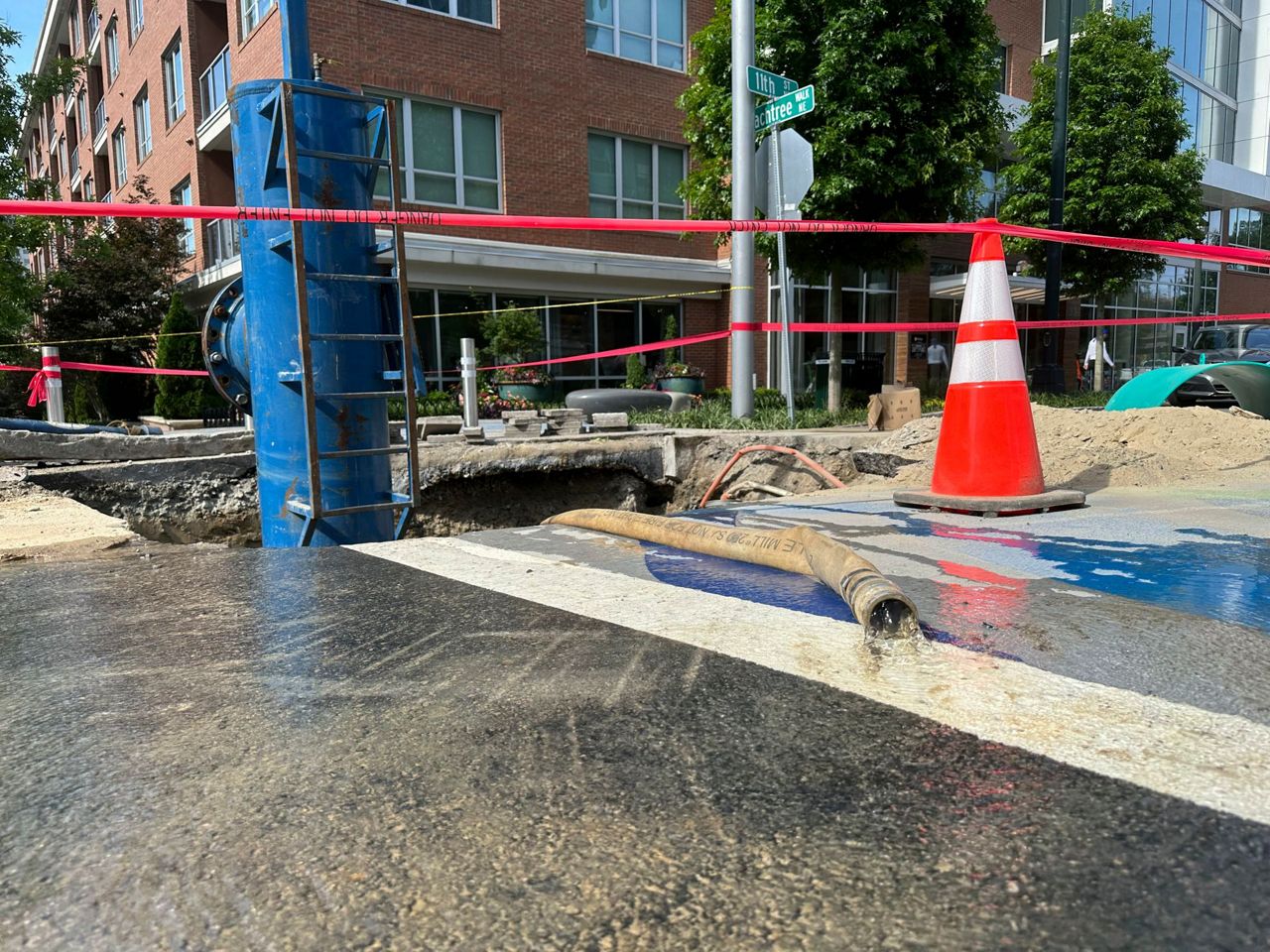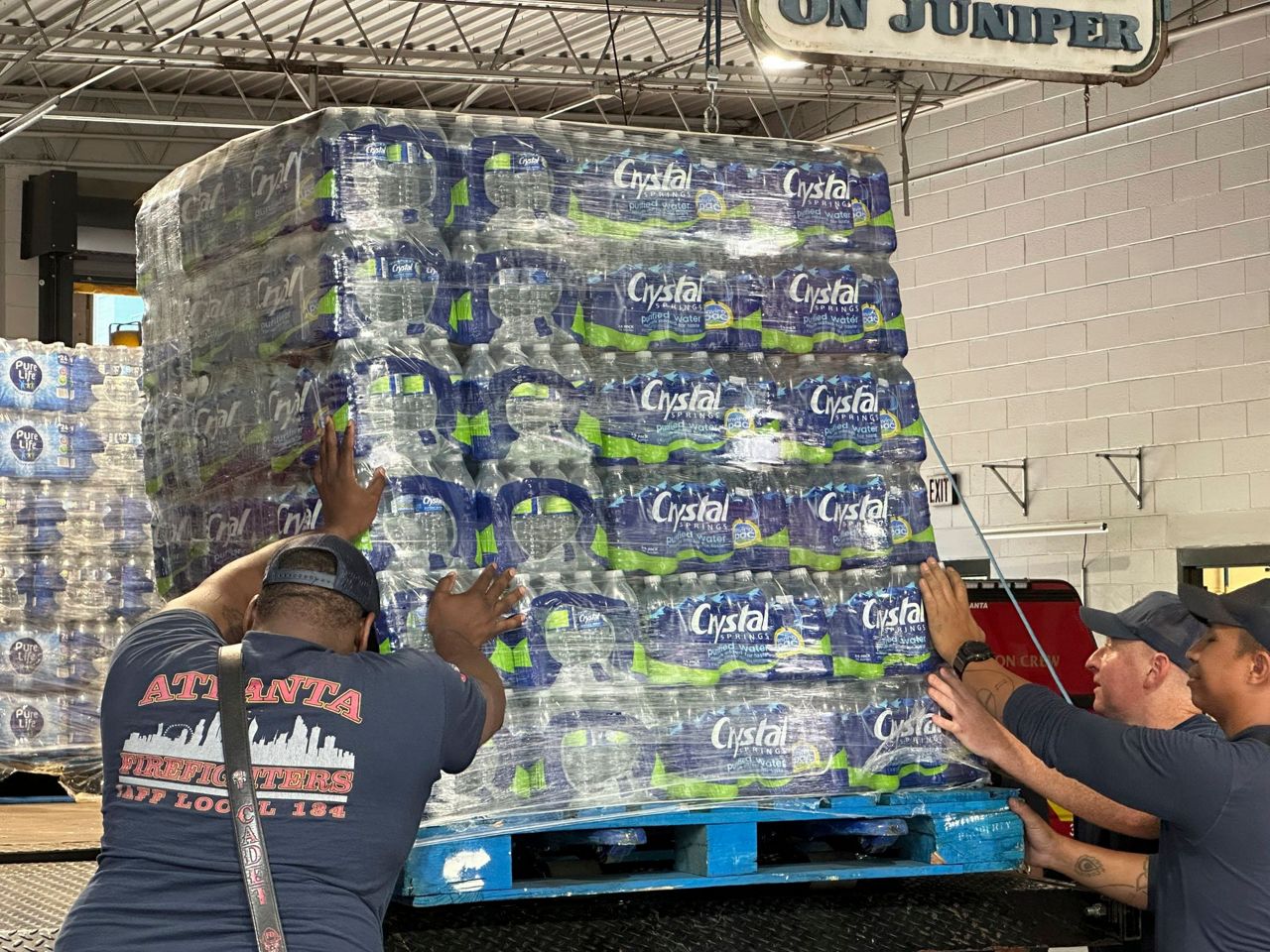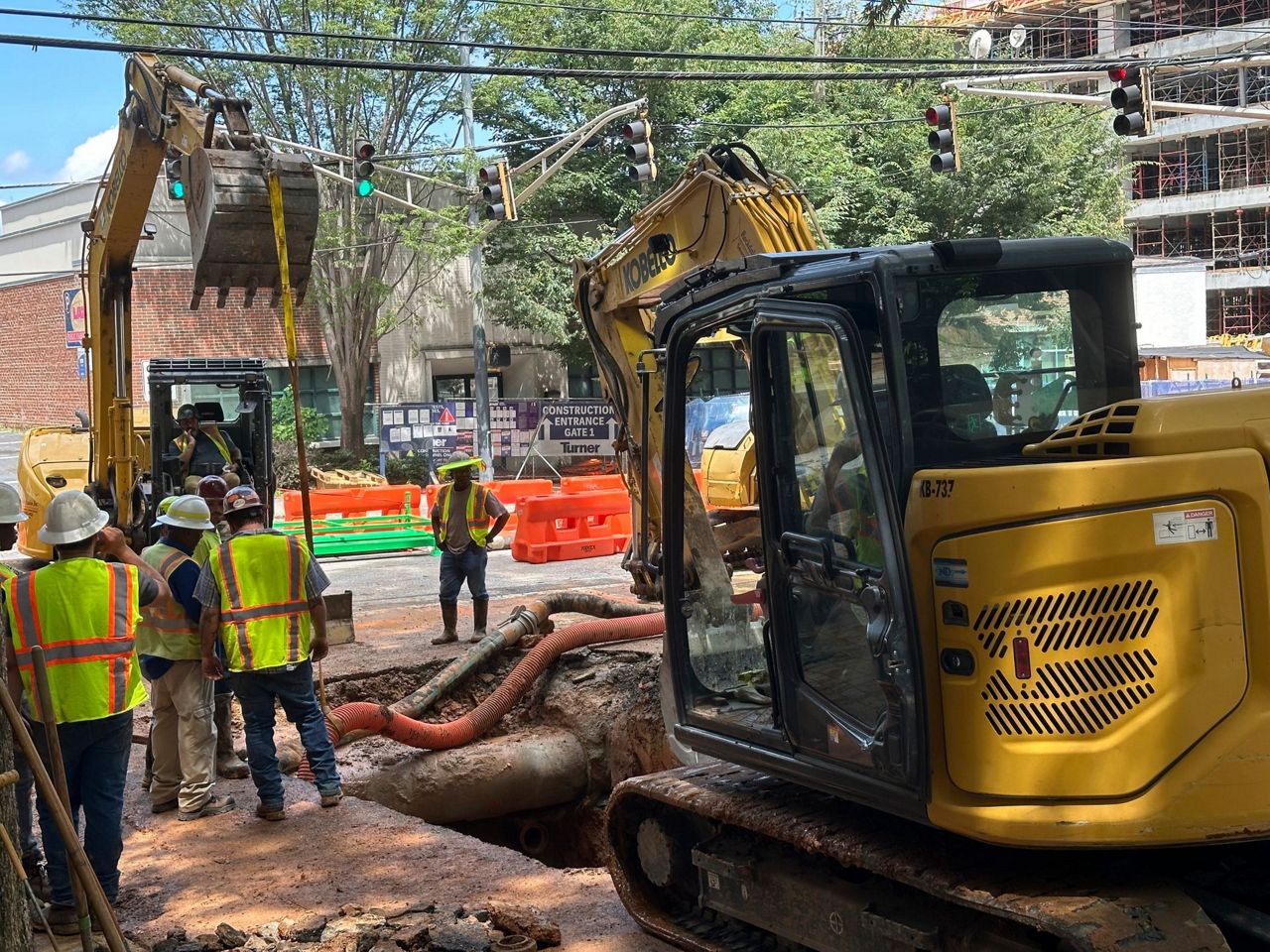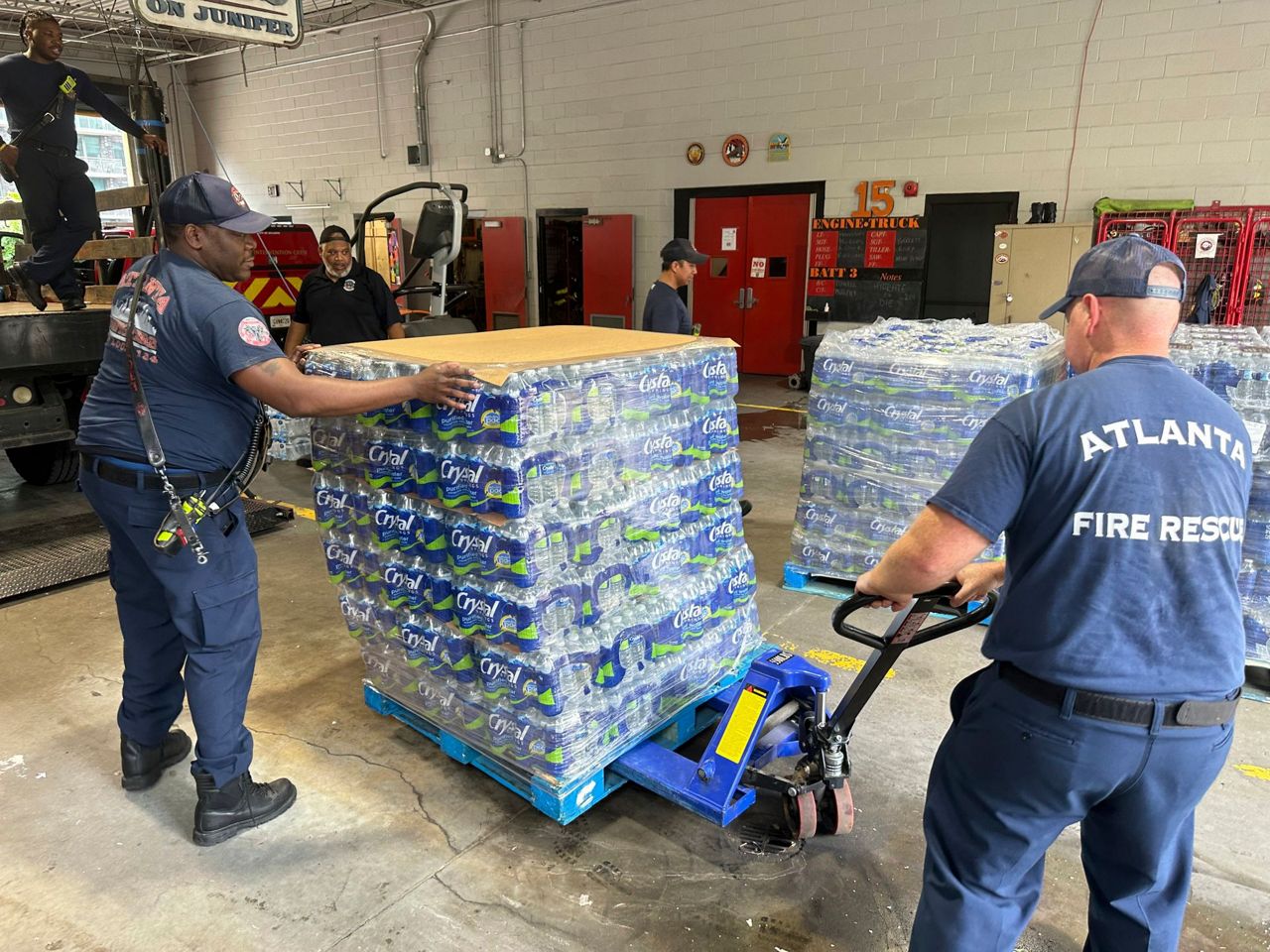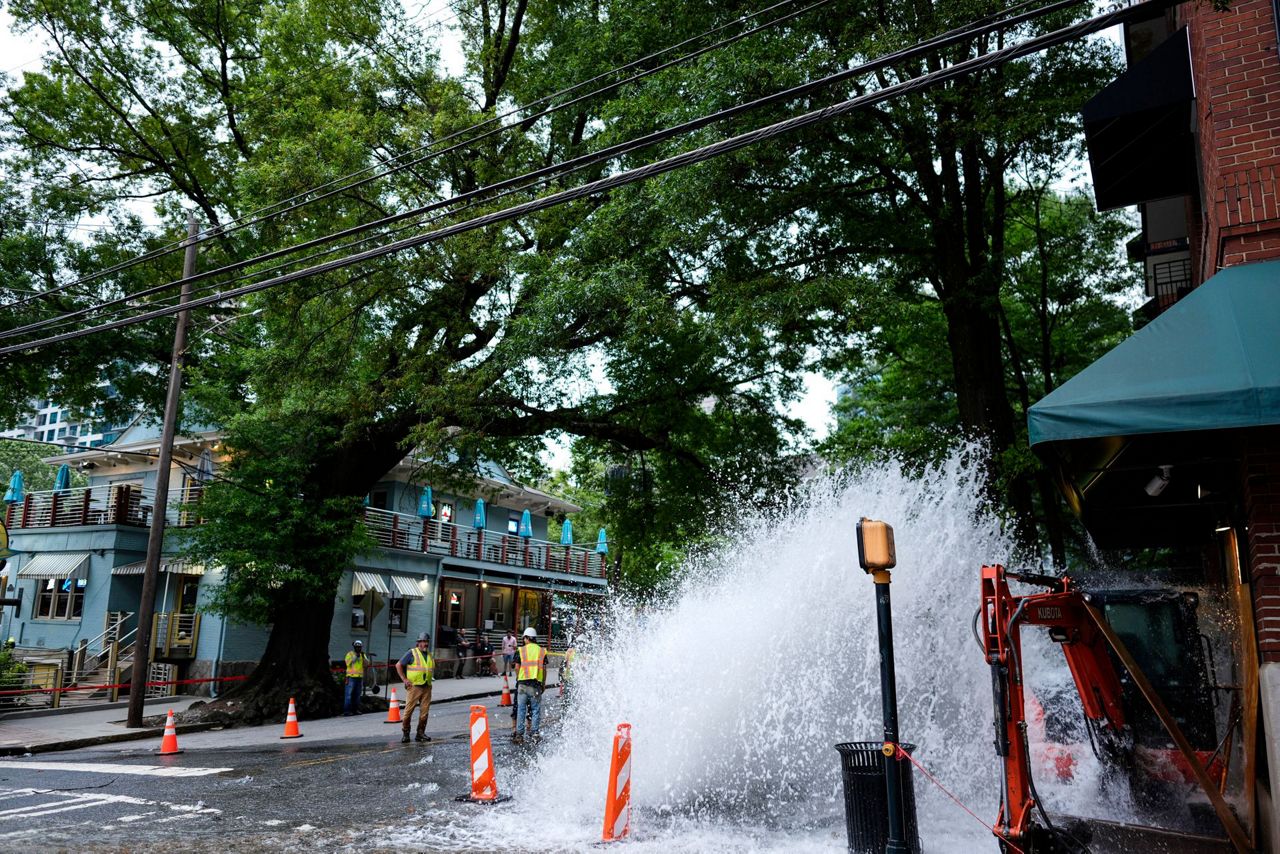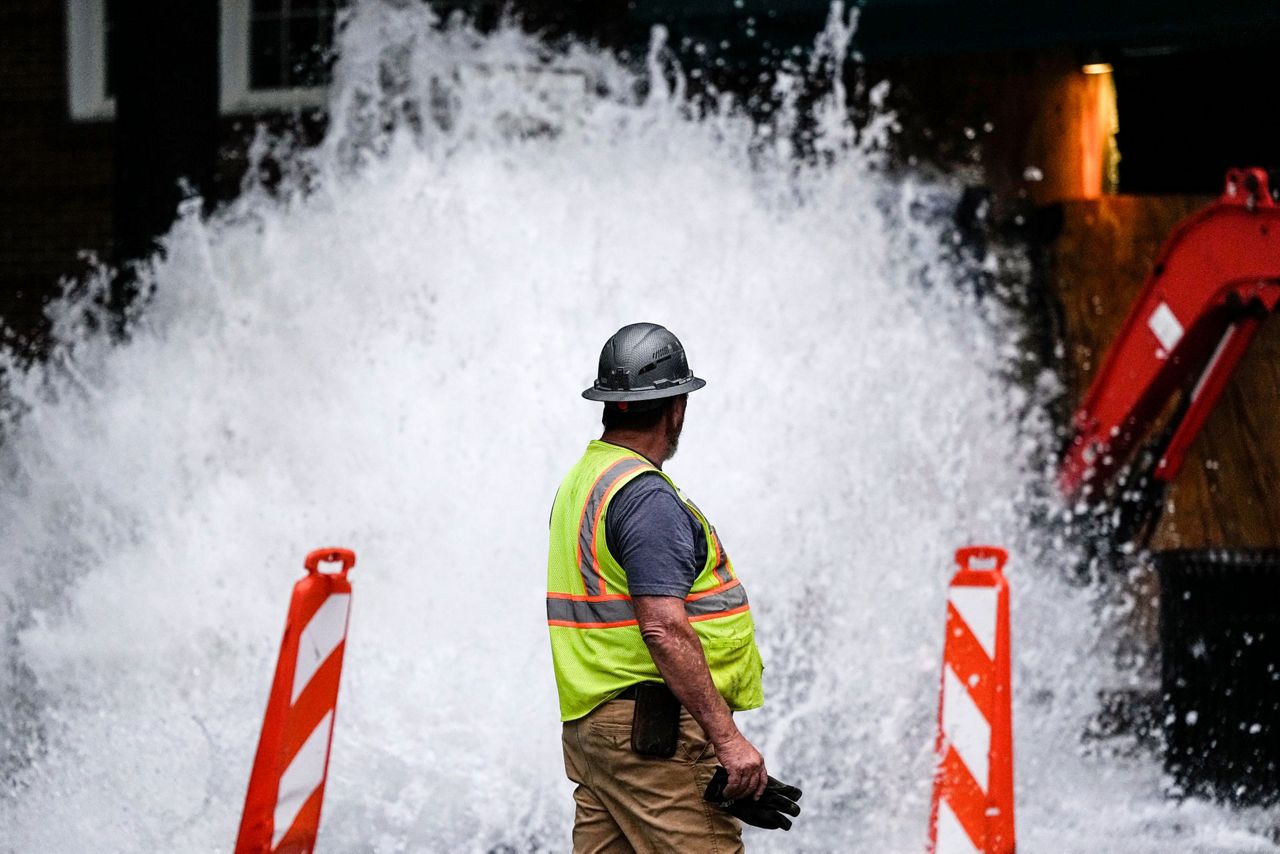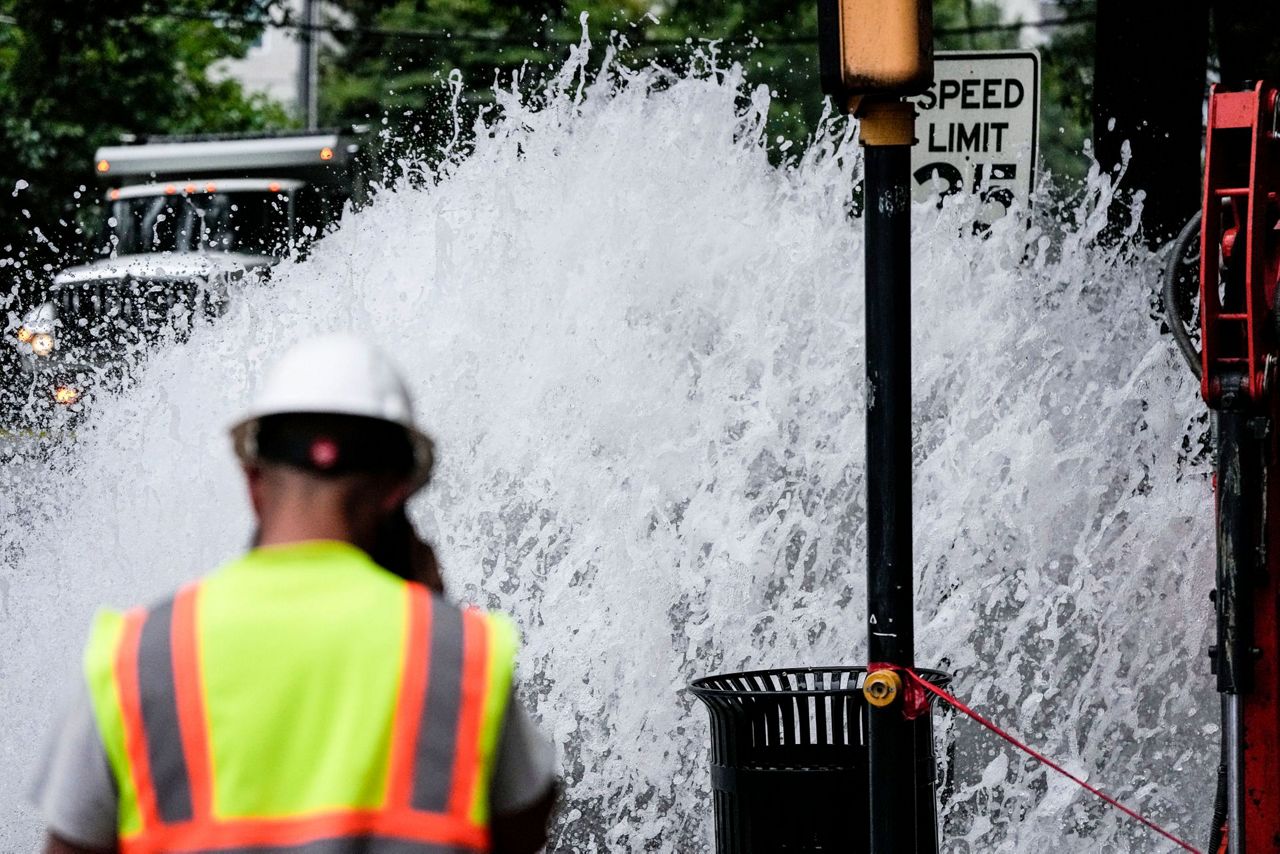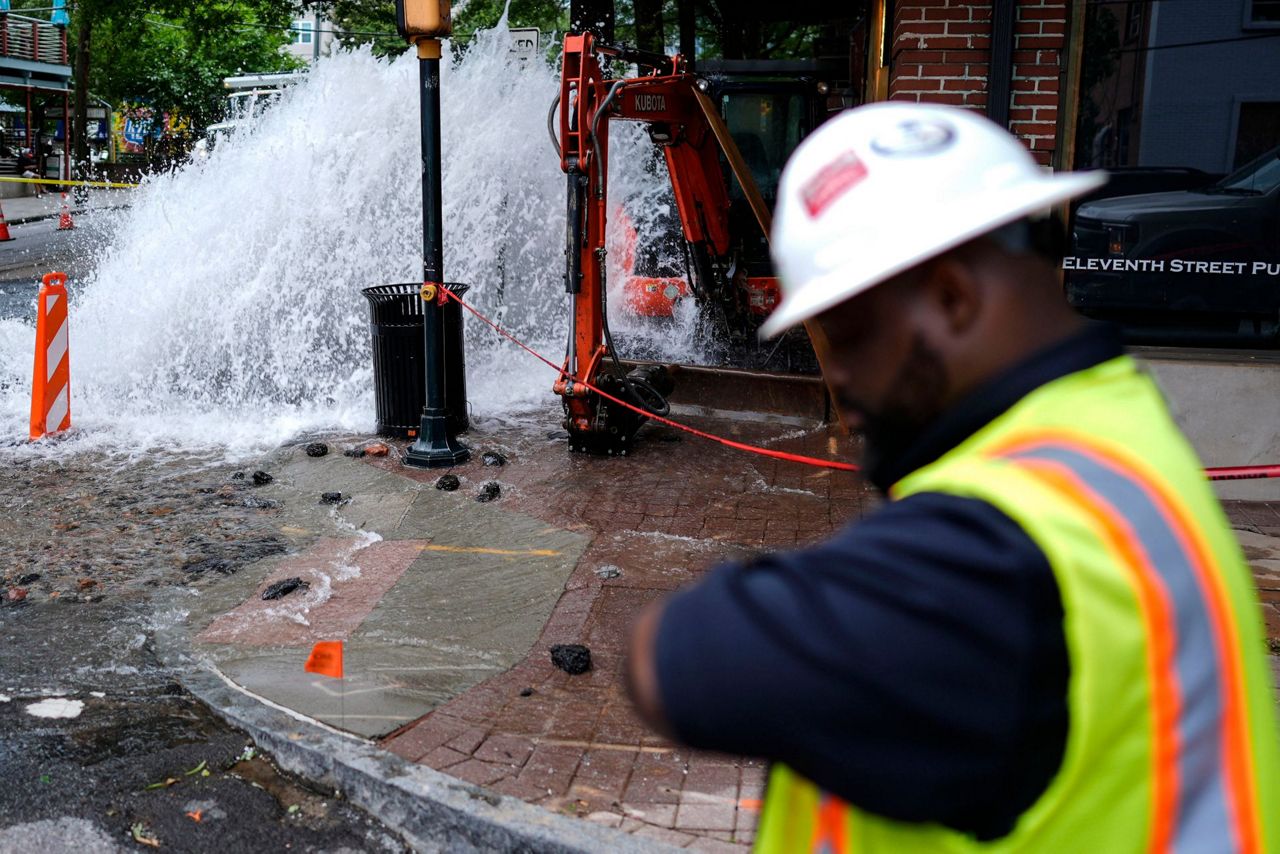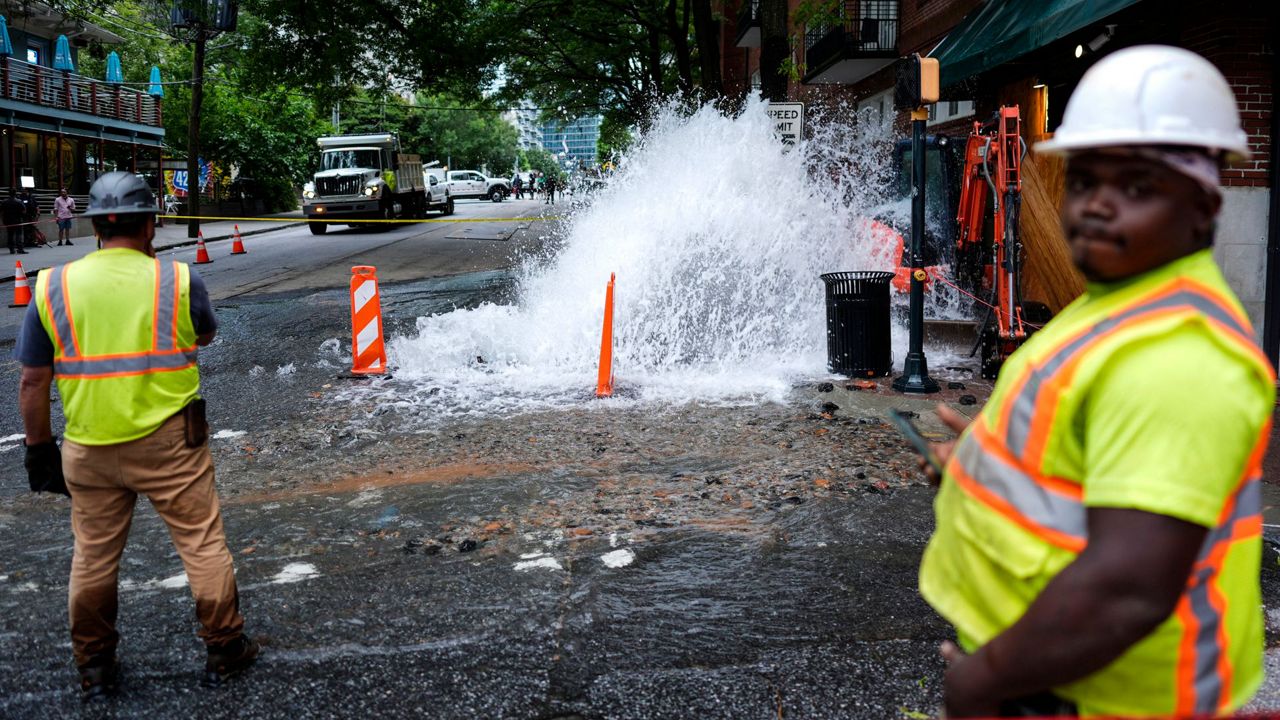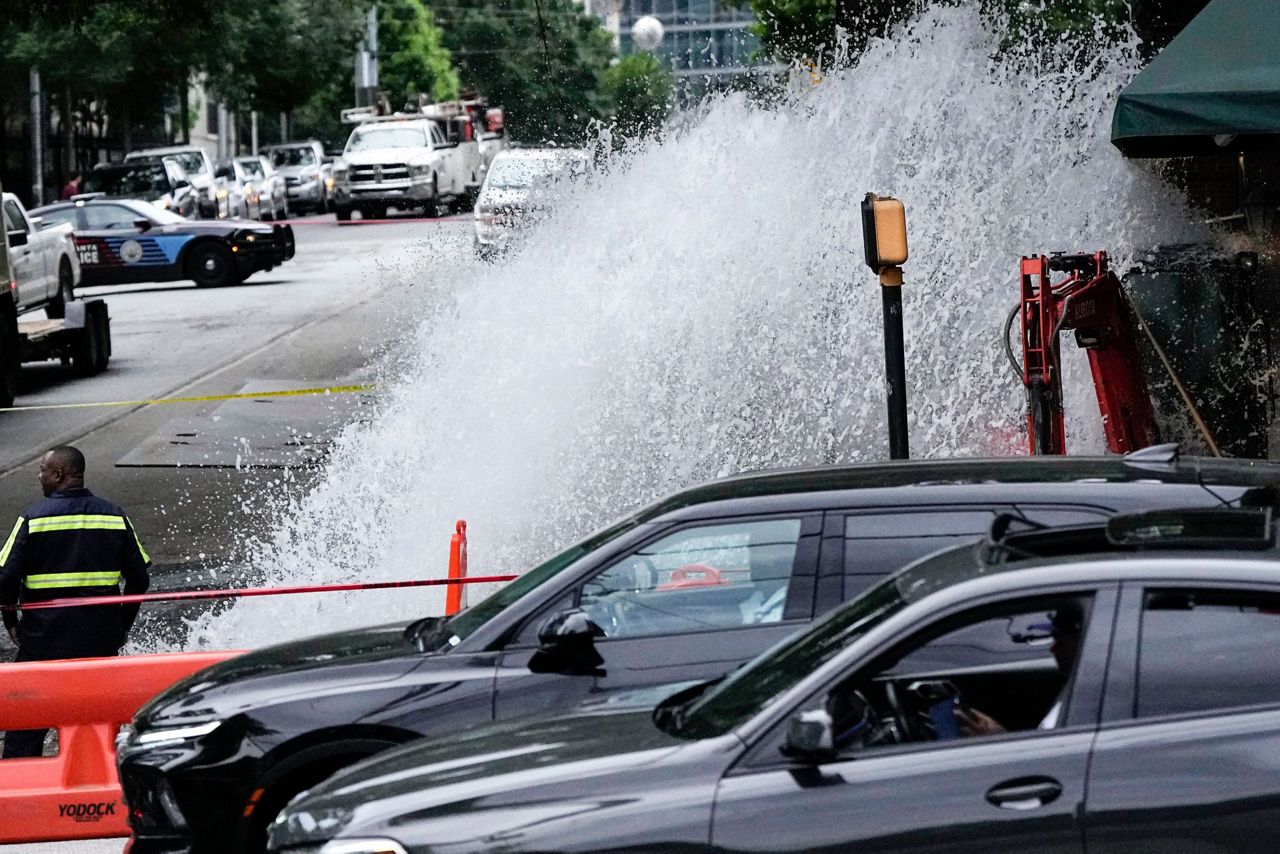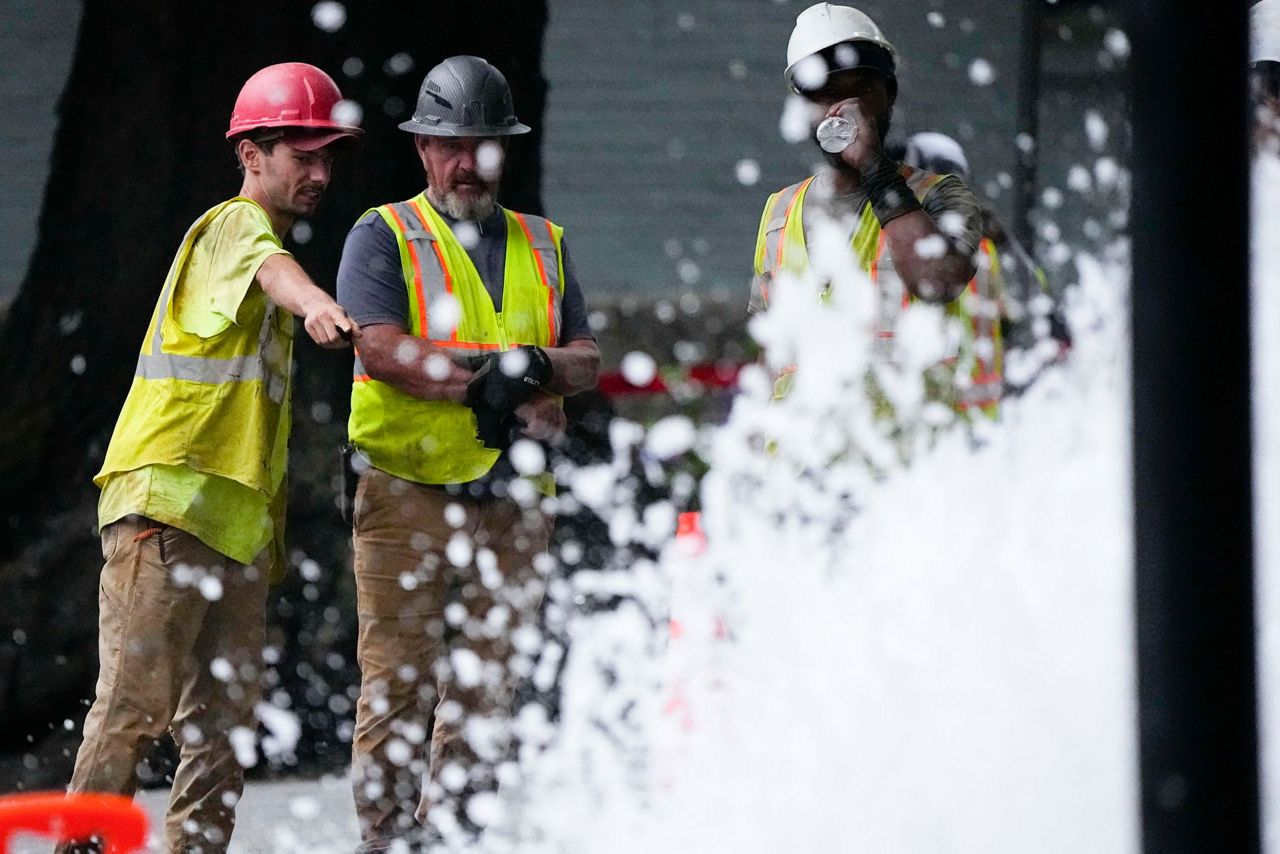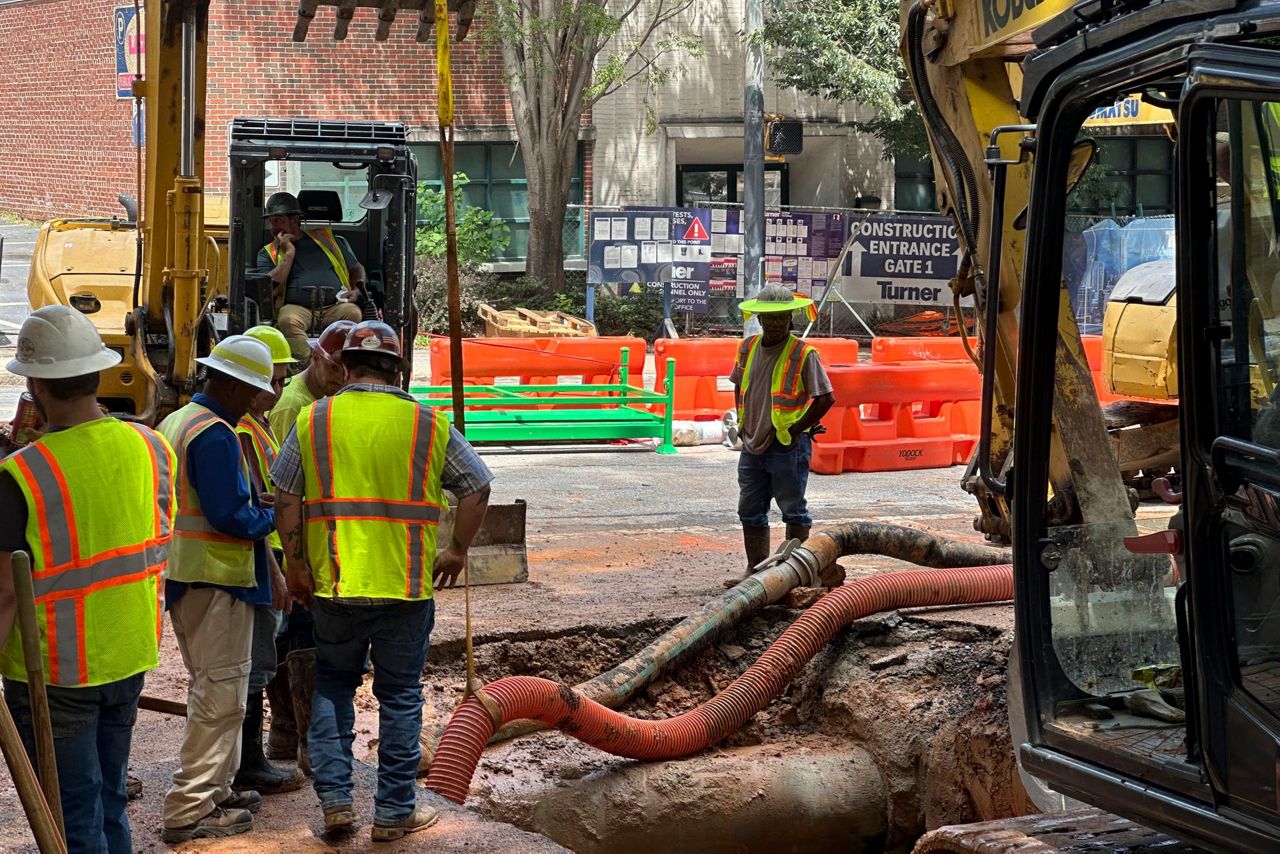ATLANTA (AP) — For at least some residents, Atlanta's water problems weren't over Monday.
Milena Franco, who lives in the city's Midtown neighborhood, said she and her husband had water all weekend. But Monday morning, the flow was cut off, as Franco discovered when she tried to take a shower.
“I got in the shower and I just cried for a little bit," Franco said.
City officials said water was shut down in the immediate neighborhood as part of an effort to stanch the flow from a broken water main that had been gushing a river into the streets since Friday night.
The geyser finally ran dry around sunrise Monday, after officials trucked in parts from Alabama under a police escort. But a large swath of the city remained under an order to boil water before drinking it, even in areas where pressure had been restored after a first mammoth leak was fixed Saturday. The days of outages had some residents frustrated with the pace of repairs, saying the city still isn't doing a good job of providing information.
“We are laser-focused on this problem and my administration understands how critical water is for our lifeline in this city,” Dickens told reporters at the site of the water main break Monday.
But his news conference ended before reporters could ask all their questions because resident Rhett Scircle was asking the questions residents in nearby buildings wanted to know.
“When will the water be back on? Is there any estimated timeline? We live right here!” Scircle yelled at Department of Watershed Management Commissioner Al Wiggins Jr.
Wiggins, though, declined to estimate when water would be flowing again, even as backhoes continued digging in a hole behind him.
The outage has not affected the entire city of 500,000 — many areas in Atlanta’s northern and southern ends never lost water pressure and never faced a boil order. But for thousands of residents, trouble began Friday when a junction of three water mains sprang a massive leak west of downtown. Wiggins said that leak was caused by corrosion and was tricky to repair because the three pipes created a confined space for work.
The Midtown leak began hours later. Wiggins said city workers still aren't sure why it happened, but it to was difficult to fix because it happened at a junction of two large water pipes, and the valve to turn them off was inaccessible because of the gushing liquid. The city instead dug holes in four directions a block away to cut off the flow to the Midtown leak, although Scircle and some other residents said they saw little work for much of Saturday and Sunday.
Water pressure began to be restored early Sunday for many, and some big events, like a concert and an Atlanta United soccer match took place downtown Sunday.
But it was a hard weekend for other residents. Workers at a bar adjoining the Midtown leak were beginning to try to clean up Monday after the water burst through a plate glass window and the bar was closed all weekend, costing the owner and workers money. A hotel adjoining the Midtown break was evacuating some guests Monday after a dry weekend.
Some high-rise office buildings remained closed Monday, saying there wasn’t enough water pressure to run air conditioning units and carry water to high floors.
Dickens, a first-term Democratic mayor was in Memphis, Tennessee, conducting a political fundraiser for his 2025 reelection campaign Friday and did not return until Saturday. Many residents have attacked the city's response, saying officials continued to fail to communicate clearly, even after Dickens apologized Saturday and promised updates at two-hour intervals.
Jose Franco, Milena Franco's husband, said he and his wife had continued to drink tap water for a time Saturday because they didn't know about the boil water order. Both he and his wife said that the water cutoff in their apartment took them by surprise before dawn Monday.
“If they know there's not going to be water for a few days, they should provide more free water,” Jose Franco said. And he noted “the elephant in the room” — the inability to flush toilets.
Marie Moore, who lives in a high-rise apartment building for seniors and people with disabilities, wheeled her walker to a neighboring fire station in Midtown to pick up what she said was her first case of bottled water. Firefighters there were wrestling three more pallets of water off a truck, saying they were handing out cases quickly.
Moore, whose water slowed to a trickle in her apartment over the weekend, said she believed the emergency proved the city needs to try to tap more federal money to improve its infrastructure.
“It seems like everything is falling apart,” she said.
Faltering infrastructure is a common story in older parts of American cities. Atlanta has spent billions in recent years to upgrade its aging sewer and water infrastructure, including a tunnel drilled through 5 miles (8 kilometers) of rock to provide the city more than 30 days of stored water. Last month, voters approved continuing a 1-cent sales tax to pay for federally mandated sewer upgrades. The city at one time routinely dumped untreated sewage into creeks and the Chattahoochee River.
Wiggins said Monday that “there's always ongoing work” on the city's water system.
Dickens declared a state of emergency so the city could buy materials and hire workers without following the normal purchasing laws, but a spokesperson said there was no estimate yet of how much the emergency had cost the city.
Copyright 2024 The Associated Press. All rights reserved. This material may not be published, broadcast, rewritten or redistributed without permission.



